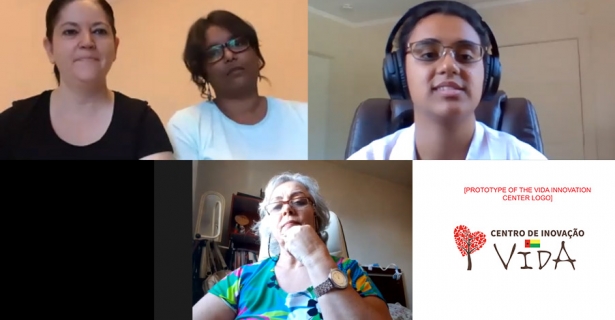The effects of the COVID-19 pandemic in any country is negative, long-lasting and visible. In Guinea-Bissau, the United Nations Development Programme just started recruiting a “Recovery and Resilience Specialist” for its office. In the background section of the job posting, the picture painted is grim. The national marketing campaign for cashew nuts was launched in early April, just as the pandemic was closing countries globally. Cashews are the main export of Guinea-Bissau, with 80 percent of households depending on the cashew campaign in a country where 80 percent of the GDP derives from foreign aid. Looking for alternative means of income becomes critical.
This summer, I have been working with a grassroots organization in Guinea-Bissau, a young nation, having become independent from Portugal in 1975. MEBAR is a faith-based organization that has a number of social projects and two low-cost private schools in a small community in the rural area around the capital, Bissau. It addresses issues from HIV prevention to solar power and clean water.
In my last blog post, I mentioned that my work with MEBAR is to help fundraise and organize the strategic planning of its new community center, the Vida Innovation Center, on the country’s main commercial route.
Our main focus at the Vida Innovation Center is education, and with the situation with the cashew nut industry, we are thinking about the role we can play in helping families diversify their income. The dependence in one product is an even more obvious problem during the times of pandemic. Guinea-Bissau is not short on natural resources, and it once was an exporter of rice, cassava and other food products.
Many Bissau-Guineans have other informal businesses and activities besides cashew nuts, but they are not as lucrative. The role of the Vida Innovation Center, as we see it, is to help Bissau-Guineans to explore the full potential of what they already produce or do. This could be by providing training in a new trade, or by providing financial literacy classes that can eventually empower them to invest in their own businesses, by providing literacy classes for women so they can be more independent and expand their work possibilities.
In the face of how the pandemic has evolved in the country in the past month, we have started reaching out to other NGOs for guidance. Following my advice, the missionaries responsible for the Vida Innovation Center want to know how other organizations are preparing for the return of their activities and what limitations they think they will have.
It is hard to predict the future to any extent in a developed country at this point, but in Guinea-Bissau, the lack of infrastructure makes even data collection a grueling task. Even so, we believe that talking to other people who have been managing community centers and bigger projects can give us an idea of what lays ahead of us.
At this point, we are moving forward with the strategic planning, with a defined scope of activities and services to be offered. With the visual identity, I have started working on promotion materials to fundraise in Brazil and in the USA. We are constantly watching news articles, reports and gathering information about the situation in Guinea-Bissau to determine what are the most pressing needs.
While we are eager to start the work on the ground, we patiently wait for the right moment for MEBAR missionaries to safely return to the country to proceed with the documentation to guarantee the terrain and start building the center. In the meanwhile, we are taking the time to plan and foresee, to the best extent possible, how the Vida Innovation Center can do the most good

